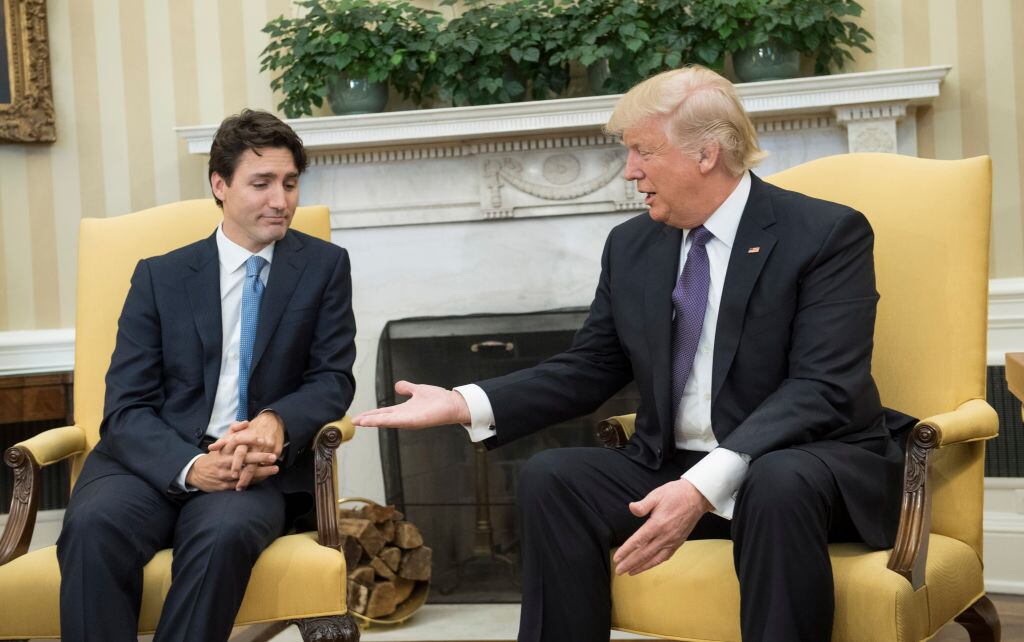WASHINGTON and COLOGNE, Germany ― The top Democrat on the Senate Foreign Relations Committee has called on the U.S. State Department’s inspector general to investigate America’s envoy to Germany, alleging he inappropriately injected partisan conservatism into European politics.
In a letter Thursday to the IG, Sen. Robert Menendez spotlighted an interview U.S. Ambassador Richard Grenell gave to the right-leaning Breitbart News Network, in which Grenell said he wants to “empower” conservative political movements across Europe.
With the remarks, Grenell, a former spokesman for the U.S. at the United Nations during the Bush administration and former Fox News contributor, was widely seen as breaking with America’s diplomatic norms.
“U.S. ambassadors, whether political appointees or career official, have long taken pains to avoid interfering in the politics of the countries in which they serve by trumpeting partisan views,” Menendez said in the letter.
The diplomatic dustup comes amid a growing gap between Washington and Berlin over trade and defense spending. Germany depends on U.S. capabilities as part of NATO’s promise of a common defense. For example, the bilateral security architecture still includes American soldiers stationed in parts of the country, where they in turn enjoy training conditions highly valued by U.S. commanders.
But many Germans have grown disillusioned with America’s trajectory since U.S. President Donald Trump’s election. The administration’s “America First” policy has drawn particular concern, as it is widely interpreted as a general willingness to throw long-standing friends under the bus if it serves U.S. interests.
Grenell’s comments are further fanning the flames of discord, analysts fear, with some German officials openly questioning whether they would be able to work with the envoy.
Wolfgang Ischinger, a former German ambassador in Washington and now the head of the Munich Security Conference, last month advised his colleague via Twitter to tone down the rhetoric.
“Ric: some advice following a long ambassadorial career: Explain your country’s policies and lobby for them — but never tell the host country what to do if you want to avoid trouble,” Ischinger wrote. “The Germans like to listen, but they don’t take well to demands.”
The Berlin newspaper Tagesspiegel this week made note of the deep political divisions within the United States, running a story with the headline: “Grenell represents the United States — Trump’s United States.”
For his part, Grenell has not retracted his comments, but in a tweet last Sunday, he seemed to deny that he would involve himself in European politics.
“Don’t put words in my mouth,” he tweeted. “The idea that I’d endorse candidates/parties is ridiculous. I stand by my comments that we are experiencing an awakening from the silent majority ― those who reject the elites & their bubble. Led by Trump.”
RELATED

Though the State Department has defended Grenell, at least one member of German Chancellor Angela Merkel’s coalition government has accused the envoy of interfering in Germany’s internal affairs, according to local reports.
“If you translate ‘awakening’ and ‘empowering’ in this context, very ugly German language comes up, which resonates with the 1920s and 1930s,” said Andreas Nick, a Christian Democratic Union lawmaker who also sits on the Foreign Affairs Committee in the German parliament.
But State Department spokeswoman Heather Nauert said earlier this week in response to reporters’ questions that “ambassadors have a right to express their opinion.”
“They’re representatives of the White House, whether it’s this administration or other administrations, and we hear them voicing their opinions,” she said. “And they’re sometimes opinions that people may or may not like.”
Soon after he took office in May, Grenell caught flak for tweeting after Trump withdrew from the Iran deal that German companies doing business in Iran should “immediately” wind down operations.
RELATED

Grenell was a controversial nominee among Democrats, and the Senate approved him April 26 along mostly partisan lines, 56-42. Republicans at the time accused Democrats of using procedural tactics to obstruct Trump nominees across the board.
Menendez’s objections included Grenell’s tweets insulting former first lady Michelle Obama and MSNBC host Rachel Maddow — and one retweet of Wikileaks that included documents stolen by Russian intelligence.
New Hampshire Democrat Sen. Jeanne Shaheen, a member of the Senate Foreign Relations Committee and a co-chair of the Senate NATO Observer Group, said this week that Grenell should be recalled if his political statements continue.
“The United States does not accept foreign meddling in our elections, and we shouldn’t have an ambassador attempting to intrude in another country’s political affairs,” she said in a statement.
Joe Gould was the senior Pentagon reporter for Defense News, covering the intersection of national security policy, politics and the defense industry. He had previously served as Congress reporter.
Sebastian Sprenger is associate editor for Europe at Defense News, reporting on the state of the defense market in the region, and on U.S.-Europe cooperation and multi-national investments in defense and global security. Previously he served as managing editor for Defense News. He is based in Cologne, Germany.








